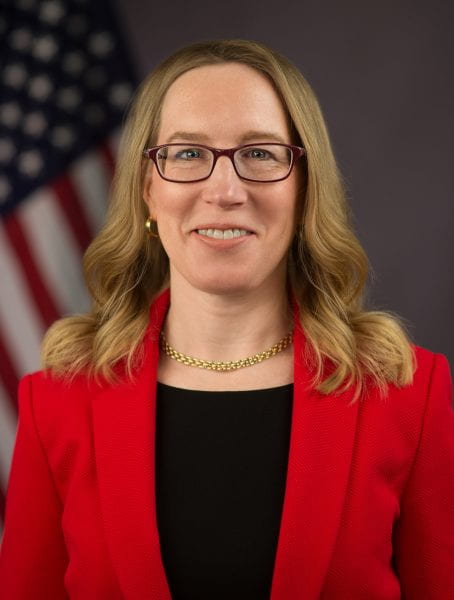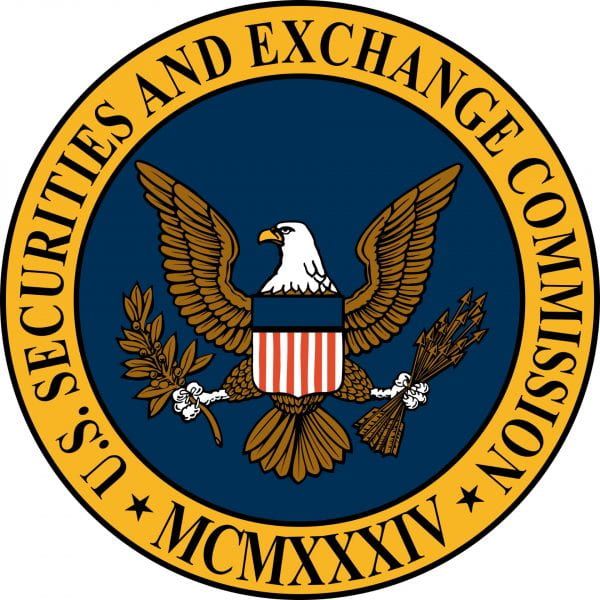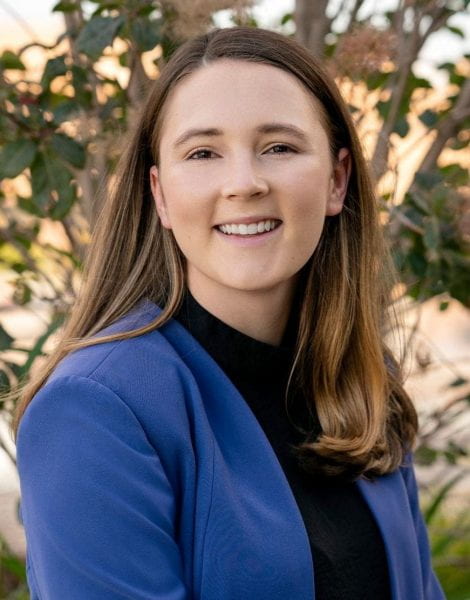By Sarah Milby ~
Regulation is a long-standing issue in the history of political economy. The questions of how much regulation is necessary and if such regulation is beneficial are well debated. For instance, Adam Smith believed in laissez faire economics, where the markets could exist in a system of “natural liberty”: markets would regulate themselves without excessive state intervention.[1] Other writers like Karl Polanyi believed that government regulation was necessary for a functioning economy.[2] Smith and Polanyi represent two sparring approaches to government regulation. Today, proponents of small government call for limited interventions in the economy, while proponents of big government call for increased government intervention in the economy. In the United States, these two sides generally follow partisan politics, as Republicans often favor small government and Democrats the opposite.
The latest space around which these questions are being debated is cryptocurrencies. Cryptocurrencies are an innovative piece of financial technology, which is presenting a new financial frontier that regulators are beginning to explore and understand. Cryptocurrencies allow payment transactions to be completed anonymously in a matter of seconds, no matter where the sender and receiver are. The speed with which the transactions occur and their anonymous, global nature have made the application of the underlying technology that cryptocurrencies run on (blockchain technology) and use of the currencies themselves generate novel issues for government regulators. In fact, many of the thoughts and ideas relating to crypto and its regulation are still speculative and rudimentary.
One particular problem that has emerged in crypto regulation is the issue of selective enforcement of securities laws. Different agencies have been racing to create regulatory frameworks and definitions for new technology, and the Securities and Exchange Commission (SEC) has decided to regulate crypto with selective enforcement. That is, the SEC has picked specific companies to charge with securities laws violations. The SEC picks cases it thinks will result in certain outcomes, including its winning the case, so that the resulting precedent from the court decisions becomes the rules that different companies need to comply with. However, the application of existing securities laws in selective enforcement cases for cryptocurrency groups has made the regulatory space uncertain, confusing, and difficult to comply with. In particular, the confusion and difficulty to apply existing regulations law to cryptocurrencies have renewed the centuries old debates about government regulation and how it affects markets.
At the center of this debate is current SEC Commissioner Hester M. Peirce. As SEC Commissioner, what Peirce writes and says becomes part of the leading dialogue on securities regulation issues. In fact, with the SEC’s recent interest in taking enforcement action against cryptocurrency groups, her position as Commissioner has led her to be one of the first critical thinkers on cryptocurrency. What makes Peirce so influential in this space is her unique attitude towards regulation. Although Peirce is a Republican, her approach to limit government intervention is not about supporting corporations more than individuals. Rather, she views regulation as a delicate balance between the necessity of it and the freedoms it can limit. [3] She bases her understanding of what effective and necessary regulation on the SEC’s mandate. Consequently, she evaluates the success of different regulations by measure of how much they advance the SEC’s mission. If a regulation or decision does not further the SEC’s mandate, she is quick to dissent and provide an in-depth analysis of why she disagrees.
Peirce was trained as a lawyer at Yale Law School. Some of her professional activities since graduating from law school include clerking for Judge Roger Andewelt on the Court of Federal Claims and serving as Senior Counsel to the Senate Committee on Banking, Housing, and Urban Affairs and as Counsel to SEC Commissioner Paul S. Atkins. She has conducted research on the regulation of financial markets for the Mercatus Center, and she has been an adjunct professor at the George Mason Law School. In addition to this professional work, Peirce has written two books on financial regulation, Reframing Financial Regulation: Enhancing Stability and Protecting Consumers and Dodd-Frank: What It Does and Why It’s Flawed.[4]
Peirce developed her regulatory agenda and understanding of what it means to responsibly wield regulatory authority before she became Commissioner. In her books, which were published in 2013 and 2016, Peirce prioritized revising financial regulations she saw as insufficient or problematic. In the opening of the book Reframing Financial Regulation, Peirce calls for regulators to consider adopting an approach that requires “a willingness to revisit our current regulatory models and ask whether they are working as intended to foster financial stability, support economic growth, and protect consumers.”[5] Although she wrote this five years before becoming Commissioner, she essentially asked regulators to consider whether current regulatory models are working to further the SEC’s mandate. The SEC’s mandate has 3 parts:
- Protect investors,
- Maintain fair, orderly, and efficient markets,
- Facilitate capital formation.
Each of these echoes what Peirce thought regulators should do in order to maintain helpful regulation. Maintaining markets helps foster financial stability, facilitating capital formation helps support economic growth, and protecting investors, who back products for consumers and are consumers themselves, is a way to protect consumers. Thus, it is no surprise that Peirce, in her role of Commissioner, has used the SEC’s mission statement as a framework for evaluating and crafting different regulations.
The most notable issue Peirce has taken on since becoming SEC Commissioner is how to create a fair regulatory framework for cryptocurrencies and their investors. Specifically, she has worked extensively on the issue of regulating initial coin offerings (ICOs). An ICO is an event in which cryptocurrency developers raise funds by selling their soon-to-be-made tokens at discounted prices to investors. The investors are promised a certain number of tokens that they will receive once the project has launched and the coins are created. What has been so difficult about the regulations of ICOs is the catch-22 that has resulted from the SEC regulating through enforcement action. To put it simply, there are two parts of the issue. The first is that the cryptocurrency developers have been stopped by the SEC from launching their projects because they were funded using ICOs, a mechanism that the SEC deemed to be an illegal unregistered securities offering. The second part is that the developers intend to have no central governing body of the projects they create because blockchain networks can run without any governing body. However, the SEC has been able to apply and enforce existing securities regulation by prosecution since developers are a central group launching the crypto tokens. Consequently, the SEC has been able to delay and altogether stop cryptocurrency start-ups that used ICOs to fundraise if the SEC found that the ICO was an unregistered securities offerings.
Peirce has spoken against many of the SEC’s decisions to take enforcement action against cryptocurrency projects that used ICOs. Peirce has not criticized the SEC’s actions against fraudulent ICOs.[6] Instead, Peirce suggests that some of the SEC’s efforts to regulate non-fraudulent ICOs have gone against its mandate and overstepped its jurisdictional bounds.[7] A good example of Peirce using the mandate to criticize the SEC is her dissent against the enforcement action for Telegram. In Securities and Exchange Commission v. Telegram Group Inc. et al., the New York Southern District Court judge ruled in favor of the SEC, which had claimed that Telegram “engaged in an unregistered offering of securities by selling ‘Grams,’ a digital token, to certain sophisticated investors.”[8] The judge granted the SEC’s request for injunctive relief, and Telegram agreed to return $1.2 billion to investors and to pay a $18.5 million penalty to settle the SEC’s charges.[9] The majority of the funds returned to investors from outside the United States.
Soon after the decision, Peirce delivered a speech to the Blockchain Association Singapore and compared the outcome of Telegram to the SEC’s mission statement to see if it was a success.[10] Peirce argued that Telegram was a failure because the penalties and result of the enforcement action failed to support a single prong of the mandate. [11] First, Peirce argued that the decision did not protect investors since it shut down the project they had invested in. She said that the investors had demonstrated their commitment to the project even after the enforcement action started since the investors decided not to withdraw their funds when the SEC forced the option. The product’s failure to launch took away the opportunity for returns on investment for the different investors. This meant that the decision failed the second prong to facilitate capital formation since it shut down a project that investors had seen promise in. Third, Peirce argues that the decision did not help maintain fair markets. Instead, she said, it decreased competition since the Telegram group was barred from launching its product in competing markets. Peirce criticized the SEC’s decision to deny Telegram an opportunity to restructure the project and launch it in a way the SEC deemed compliant. This action was problematic for Peirce because it shut down a competitor from entering the market and set precedent that can shut down similar competing companies in the future.
Finally, Peirce criticized the SEC on a more fundamental issue of overstepping its jurisdictional boundaries. This enforcement action affected a foreign company, the majority of whose investors were from outside the United States. Moreover, these were all investment savvy, high net-worth individuals that qualified as “accredited investors.”[12] This led Peirce to question who the enforcement action was protecting since the settlement would “go to repay the initial purchasers, the people the district court determined were an integral part of the securities law violation.”[13] Further, she questioned whether US regulatory powers should be able to apply to non-US companies in this kind of situation. She said, “we would do well to recall that our way is not the only way,” and that the US “should be cautious about asking for remedies that effectively impose our rules beyond our borders.”[14] Broadly, Peirce used this dissent to say that “Enforcement actions…are not an appropriate mechanism to create new law” for cryptocurrencies and that the SEC’s choice to only address crypto with enforcement action “leave[s] the industry to guess at the path to compliance.”[15]
Peirce has used her position as Commissioner to share her opinion and think critically about regulation issues for cryptocurrencies. The dissents and other pieces Peirce have made for the public and academic conference audiences since becoming Commissioner have helped Peirce earn the nickname Crypto Mom and be seen as an icon of advocacy for the space. In particular, Peirce’s ideas have been highlighted and evaluated by cryptocurrency Twitter users and other media outlets. These media sources have lauded Pierce’s suggestions for their clarity and fairness to innovators.[16]
However, despite Peirce having been given the name “Crypto Mom” by the Twitter community and cryptocurrency media outlets, her position as Commissioner offers her limited power to change the SEC and its approach to regulation. As one of four SEC Commissioners, Peirce is often outvoted by her colleagues on matters of regulating cryptocurrencies. This means that the one dissenting voice of a Commissioner is insufficient to stop or reverse the Commission’s enforcement actions. Moreover, Peirce has been unsuccessful in convincing her colleagues in the SEC to abandon the pattern of fractured regulation by enforcement action and to instead consider creating comprehensive, clear regulations for cryptocurrencies that benefit consumers and investors. This failure has been exhibited by the fact that the SEC has continued to use of selective enforcement to regulate crypto, most recently with charging a computer programmer John McAfee for fraudulently touting ICOs.[17]
Despite these challenges, Peirce’s ideas have started to appear in the little scholarship there is on securities regulation and cryptocurrency. The number of studies that engage with the issues Peirce has discussed is limited, and they do not attribute Peirce the ideas of hers that they engage with. Still, they show how Peirce’s beliefs are disseminating beyond the sphere of Twitter users and crypto media. For example, James Park and Howard Park’s article titled “Regulation by Selective Enforcement” offers an in-depth examination of the history of the SEC regulating ICOs by selective enforcement.[18] The article does not mention Peirce, but it echoes her arguments and criticizes the SEC, saying that the SEC has chosen a handful of significant cases to take action against while refusing to take action against a majority of ICOs in similar situations. A second article by Avery Minor titled “Cryptocurrency Regulations Wanted: Iterative, Flexible, and Pro-Competitive Preferred” supports Peirce’s belief that a clear regulatory framework for cryptocurrencies is necessary.[19] Minor floats the idea of a safe harbor (a period of time for a company to get up and running before the SEC evaluates if the ICO was an unregistered securities offering) as solution to the catch-22 issue since it would give companies a chance to wean themselves from governing the networks. However, Minor does not mention the fact that it was Hester Peirce who formally introduced the idea of a safe harbor for ICOs or the fact that Peirce has commented on the necessity of creating a comprehensive framework for regulating cryptocurrencies.[20]
Going forward, it is unclear what the future holds for cryptocurrency markets or Peirce and her ideas on crypto’s regulatory uncertainty. Nevertheless, Hester Peirce has done important work as a regulator. She has pumped the breaks and challenged her colleagues when she thinks they forget their power and their purpose. Additionally, she has called for regulators to remember that they should revise their regulations to accommodate change and innovation. When Peirce introduced her safe harbor proposal she said, “It is important to write rules that well-intentioned people can follow. When we see people struggling to find a way both to comply with the law and accomplish their laudable objectives, we need to ask ourselves whether the law should change to enable them to pursue their efforts in confidence that they are doing so legally.”[21] The support for the inventor, the investor, and the consumer are at the forefront of her mind, and she is using all of the tools at her disposal to shape the conversation and ensure that regulators can work to fulfill their mandate in smart and reasonable ways.
About the author:
Sarah Milby is a senior at the University of Chicago, and she graduates in December with a BA in Law, Letters, and Society. She wrote her senior honors thesis on cryptocurrency’s unique features and the novel issues it presents to regulators. She found that there is currently no theoretical framework for discussing the issues cryptocurrencies present because of the transactions’ global, decentralized, and anonymous nature. After graduating, Sarah will work as a policy manager for the Blockchain Association. She is from Washington, DC and has a dog named Reginald.
References:
[1] Adam Smith, An Inquiry into the Nature and Causes of the Wealth of Nations, 4th ed., vol. no. 13148., Goldsmiths’-Kress Library of Economic Literature No.13148 (London: Printed for A. Strahan, and T. Cadell, 1786), 302.
[2] Karl Polanyi, The Great Transformation, First (Boston, Massachusetts: Beacon Press, 1944), https://inctpped.ie.ufrj.br/spiderweb/pdf_4/Great_Transformation.pdf, 75-76.
[3] Hester Peirce, “Intellectual Siren Song,” U.S. Securities and Exchange Commission, September 18, 2020, https://www.sec.gov/news/speech/peirce-intellectual-siren-song-2020-09-18.
[4] Hester Peirce et al., Dodd-Frank: What It Does and Why It’s Flawed (Mercatus Center at George Mason University, 2013); Hester Peirce et al., Reframing Financial Regulation: Enhancing Stability and Protecting Consumers, 1st edition (Arlington, Virginia: Mercatus Center at George Mason University, 2016).
[5] Peirce et al., Reframing Financial Regulation.
[6] Hester Peirce, “How We Howey,” U.S. Securities and Exchange Commission, May 9, 2019, https://www.sec.gov/news/speech/peirce-how-we-howey-050919.
[7] Peirce, Hester. “Not Braking and Breaking.” U.S. Securities and Exchange Commission, July 21, 2020. https://www.sec.gov/news/speech/peirce-not-braking-and-breaking-2020-07-21.
[8] David Miller and Charlie Berk, “SEC v. Telegram:A Groundbreaking Decision in Cryptocurrency Enforcement?,” The National Law Review, April 1, 2020, https://www.natlawreview.com/article/sec-v-telegram-groundbreaking-decision-cryptocurrency-enforcement.
[9] “Telegram to Return $1.2 Billion to Investors and Pay $18.5 Million Penalty to Settle SEC Charges,” U.S. Securities and Exchange Commission, June 26, 2020, https://www.sec.gov/news/press-release/2020-146.
[10] Hester Peirce, “Not Braking and Breaking,” U.S. Securities and Exchange Commission, July 21, 2020, https://www.sec.gov/news/speech/peirce-not-braking-and-breaking-2020-07-21.
[11] Ibid.
[12] Peirce, “Not Braking and Breaking.”
[13] Ibid.
[14] Ibid.
[15] Ibid.
[16] Turner Wright, “‘Crypto Mom’ Nominated to Serve as SEC Commissioner Until 2025,” Cointelegraph, June 4, 2020, https://cointelegraph.com/news/crypto-mom-nominated-to-serve-as-sec-commissioner-until-2025.
[17] “SEC Charges John McAfee With Fraudulently Touting ICOs,” U.S. Securities and Exchange Commission, October 5, 2020, https://www.sec.gov/news/press-release/2020-246.
[18] James J. Park and Howard H. Park, “Regulation by Selective Enforcement: The SEC and Initial Coin Offerings The Rise of Fintech,” Washington University Journal of Law & Policy 61 (2020): 99–132.
[19] Avery Minor, “Cryptocurrency Regulations Wanted: Iterative, Flexible, and Pro-Competitive Preferred,” Boston College Law Review 61, no. 3 (March 30, 2020): 1149.
[20] Hester Peirce, “Running on Empty: A Proposal to Fill the Gap Between Regulation and Decentralization,” U.S. Securities and Exchange Commission, February 6, 2020, https://www.sec.gov/news/speech/peirce-remarks-blockress-2020-02-06.
[21] Peirce, “Running on Empty: A Proposal to Fill the Gap Between Regulation and Decentralization.”
Bibliography:
Minor, Avery. “Cryptocurrency Regulations Wanted: Iterative, Flexible, and Pro-Competitive Preferred.” Boston College Law Review 61, no. 3 (March 30, 2020): 1149.
Park, James J., and Howard H. Park. “Regulation by Selective Enforcement: The SEC and Initial Coin Offerings The Rise of Fintech.” Washington University Journal of Law & Policy 61 (2020): 99–132.
Peirce, Hester. “How We Howey.” U.S. Securities and Exchange Commission, May 9, 2019. https://www.sec.gov/news/speech/peirce-how-we-howey-050919.
Peirce, Hester. “Intellectual Siren Song.” U.S. Securities and Exchange Commission, September 18, 2020. https://www.sec.gov/news/speech/peirce-intellectual-siren-song-2020-09-18.
Peirce, Hester. “Not Braking and Breaking.” U.S. Securities and Exchange Commission, July 21, 2020. https://www.sec.gov/news/speech/peirce-not-braking-and-breaking-2020-07-21.
Peirce, Hester. “Running on Empty: A Proposal to Fill the Gap Between Regulation and Decentralization.” U.S. Securities and Exchange Commission, February 6, 2020. https://www.sec.gov/news/speech/peirce-remarks-blockress-2020-02-06.
Peirce, Hester. “Statement on SEC Settlement Charging Token Issuer with Violation of Registration Provisions of the Securities Act of 1933.” U.S. Securities and Exchange Commission, September 15, 2020. https://www.sec.gov/news/public-statement/peirce-statement-settlement-charging-token-issuer.
Peirce, Hester, James Broughel, J. W. Verret, Lawrence J. White, Patrick A. McLaughlin, and Robert W. Greene. Dodd-Frank: What It Does and Why It’s Flawed. Mercatus Center at George Mason University, 2013.
Peirce, Hester, Vera Soliman, William J. Luther, Arnold Kling, Thomas L. Hogan, Garett Jones, Stephen Matteo Miller, Thomas W. Miller, Houman B. Shadab, and Edward Stringham. Reframing Financial Regulation: Enhancing Stability and Protecting Consumers. 1st edition. Arlington, Virginia: Mercatus Center at George Mason University, 2016.
Polanyi, Karl. The Great Transformation. First. Boston, Massachusetts: Beacon Press, 1944. https://inctpped.ie.ufrj.br/spiderweb/pdf_4/Great_Transformation.pdf.
Smith, Adam. An Inquiry into the Nature and Causes of the Wealth of Nations. 4th ed. Vol. no. 13148. Goldsmiths’-Kress Library of Economic Literature No.13148. London: Printed for A. Strahan, and T. Cadell, 1786.
Wright, Turner. “‘Crypto Mom’ Nominated to Serve as SEC Commissioner Until 2025.” Cointelegraph, June 4, 2020. https://cointelegraph.com/news/crypto-mom-nominated-to-serve-as-sec-commissioner-until-2025.
U.S. Securities and Exchange Commission. “SEC Charges John McAfee With Fraudulently Touting ICOs,” October 5, 2020. https://www.sec.gov/news/press-release/2020-246.
U.S. Securities and Exchange Commission. “Telegram to Return $1.2 Billion to Investors and Pay $18.5 Million Penalty to Settle SEC Charges,” June 26, 2020. https://www.sec.gov/news/press-release/2020-146.




